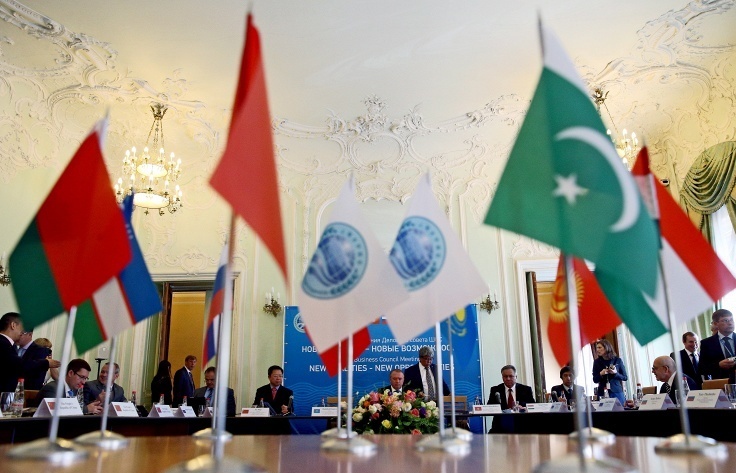
Secretary General of the Shanghai Cooperation Organization (SCO) Dmitry Mezentsev, who arrived in Zhengzhou (Henan Province, Central China) to attend a meeting of the SCO Council of Heads of Government said it is necessary to look for the organization’s interaction format with the Chinese Silk Road Economic Belt initiative.
“We cannot but take an interest today in Chinese President Xi Jinping’s initiative on the creation of the Silk Road Economic, supplemented by the Chinese maritime component,” Mezentsev told.
“The Chinese side’s presentation of the concept, and also the wide-ranging discussion at various expert venues, authoritative forums of the parties’ approaches, as well as the special assessment given in the Ufa declaration to the Chinese initiative, suggest that the SCO member states will respond to the Chinese initiative and the organization perceives the Chinese project’s presentation to a certain extent as an invitation to work together,” he said.
“It is clear that this global project will require a very thorough expert examination, study by hundreds and hundreds of experts, but it is also important that during the Chinese leader’s visit to Moscow, Russian President Vladimir Putin expressed on May 8, 2015 the common EAEU (Eurasian Economic Union) position on the readiness to link the EAEU plans with the Chinese initiative. I’m certain in this regard that SCO as an organization will have to find a format of possible interaction with both EAEU and the Chinese initiative,” said the SCO secretary general.
Russian Prime Minister Dmitry Medvedev said in an interview with Renmin Ribao, “Of course, our priority is the Eurasian Economic Union, but we are beginning to cooperate actively with China within the Silk Road Economic Belt project not giving up the idea of a common economic space from Lisbon to Vladivostok. We believe there projects can develop harmoniously,” he said.
China, according to Medvedev, is not just a friend but also one of Russia’s key economic partners. Among top priority areas of cooperation, he cited measures to promote mutual investments, joint implementation of large-scale projects, the establishment of technology parks and trans-border economic cooperation zones.
He stressed the importance of state-of-the-art transport system within the Eurasian Economic Union and the Silk Road. “First and foremost, we should focus on the routes that will make it possible to ensure reliability of transport corridors, including the Trans-Siberian Railroad and the zone of the Vladivostok free port, a territory in the Far East that will comprise the region’s key ports,” Medvedev said, adding that transport corridors from China to the European Union could run via Kazakhstan, Russia and Belarus.
“A real result of integration of the Eurasian Economic Union and the Silk Road Economic Belt for businesses in our countries will be simplified trade procedures and better protection of mutual investments between the states of the Eurasian Economic Union and China,” the Russian prime minister said. “I think a territory of co-development we will create in Eurasia will be an example of responsible and real partnership in issues of integration. We will be able to expand our cooperation not only in the sphere of energy supplies but also in the area of high technologies, including modern technologies in transport, industry, construction, communications, agriculture,” Medvedev said.